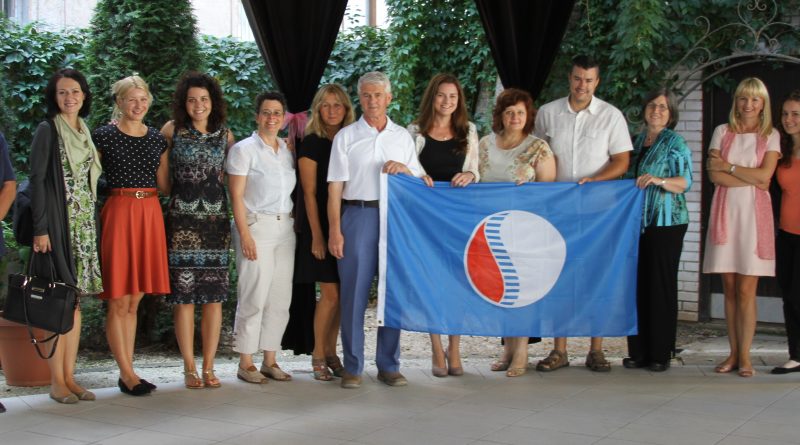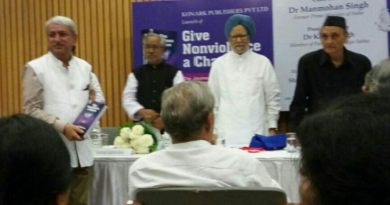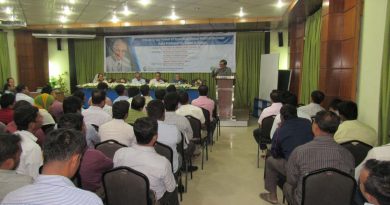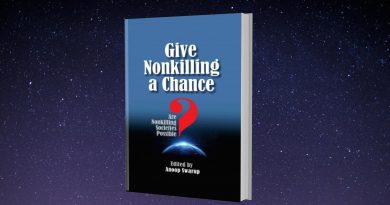2nd International Women’s Summit: Nonkilling Cultures, Sarajevo 2019
The Kolo: Women’s Cross Cultural Collaboration, in collaboration with the Center for Global Nonkilling, is organizing the “2nd International Women’s Summit: Nonkilling Cultures” to be held in Sarajevo, the capital of Bosnia and Herzegovina, on June 19-25, 2019. The call for abstract submissions is open until December 15, 2018 welcoming proposals around the main conference theme: “Women’s Issues: Trauma Healing Practices, Nonkilling Cultures- Motherhood, Empowerment in Feminist Narratives.” Detailed themes include: Women’s Trauma- psychology, neurobiology, neuroscience, Women’s Human Rights, Holocaust, Genocide & Gynocide Studies, Violence against Women, Women’s Social Collective, Peace and Social Justice Activism, Cultural Psychology, Anthropology, International Studies, Knowledge Management, Rule of Law.
The Summit continues with the legacy of the “Nonkilling Balkans Exploratory Forum” held in Sarajevo on August 28 and 29, 2014, and followed by the Sarajevo Declaration for a Nonkilling Balkans and the collective volume Nonkilling Balkans. The 2019 Summit is chaired by Dr. Danica Anderson (who can be contacted at: danica@kolocollaboration.org), together with Dr. David Pettigrew (Southern Connecticut University), Dr. Belma Sadikovic (Minnesota State University), Dr. Refik Sadikovic (Boise State University) and Dr. Sanja Garic (British Columbia Institute of Technology).
Women’s transgenerational trauma healing emerges in response to unjust conditions. In that regard women have played a significant but invisible role in their rights to challenge longstanding subordinate social, political, rule of law and economic inequalities across areas of healing trauma, war crimes, war, violence, genocide, gynocide, ethnic hatreds, diaspora, refugees, race, class, sexuality, and identity studies. The Kolo Informed Trauma Care continues to instill material, social, cultural, and political changes, self-worth, and recognition of women as an invaluable non-killing resource in face of diverse forms of subordination in a world of violence.
While women issues have been discussing the alliances between a diverse range of organizations and issue-based movements within a global society, transgenerational trauma and a diverse cast of women at the front-lines of wars and violence has been absent. With the women life experiences on the front-lines, the kolo (Serbo-Croatian) to be in a circle or to dance the folk round dance) has been found to be a nonkilling collaborative social collective healing women’s issues thus their families and communities.
The Kolo Informed Trauma Care in the context of healing trauma and motherhood, witnessed new narratives emerge alongside contemporary forms of activism. It is through narratives of trauma and motherhood call for new approximations to the marginalized voices and life experiences of women.
As a means of a collaborative and cross cultural collaborative expression, representation, and political change against patriarchal ideological domination, this panel invites abstracts for women focused psychology, a wide interdisciplinary scholarly works and more importantly women at the front lines that examine the nonkilling intersectionality;” the interconnected nature of social categorizations such as race, class, and gender as they apply to a given individual or group, regarded as creating overlapping and interdependent systems of discrimination or disadvantage.
“Through an awareness of intersectionality, we can better acknowledge and ground the differences among us.”
For example, representations of motherhood and trans-generational trauma, nonkilling approaches discourses on slavery, refugees, human trafficking, war-time sexual violence, adoption, or domestic violence). Central to the nonkilling Kolo Informed Trauma care discourses, the question can be posed as to which forces shape both women’s marginalized voices and obfuscate women’s capacity to create a peaceful culture thus eradicating violence and healing trans-generational trauma. How do women and mothers empower themselves through different means of activism (art, expression of their life experiences, herstory, writing, political activity, volunteerism, etc.) that are already grounded in the non-killing Kolo Informed Trauma Care practices?
There is no single story, but rather, shared visions of healing trans-generational trauma traversing categories of race, class, ethnicity, and national origin. As such, we welcome abstracts (250 words) across genres and disciplines and invite You, women on the front-lines, students, faculty, and independent scholars to submit academic papers, creative writing, and artistic pieces that address topics in trans-generational trauma healing approaches and practices, non-killing and cultural psychological identification, genocide-gynocide, or women’s studies.
Articles and/or clinical research may originate or enter into dialogue with current women’s issues in a world of violence. Please note, interviews with the Bosnian war crime and war survivors will be available. Topics may include, but are not limited to the following: cross cultural and ethnic divides; analysis of women’s movements; Research and historiography of individual women; Intersectionality and violence against women in nonkilling Kolo Informed trauma Care; Women’s and material feminist contributions to/effects on industrial or labor fields; Feminist Ethics/Philosophy; LGBTQ+ topics. Individual proposals should be submitted via the Kolo: Women’s Cross Cultural Collaboration- danica@kolocollaboration.org no later than 15 December 2018.
You are invited to attend the International Women’s Summit Sarajevo, 2019! Pre-Summit Events are scheduled for June 19-20th, with the formal International Women’s Summit on Friday, June 21-Sunday, June 23rd. Post Conference Events and Practicum on June 24th-25th. CEU’s available. Save the Dates and Reserve your place to attend! Please click here to find out more information about how to register!




